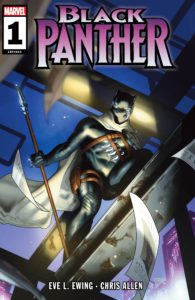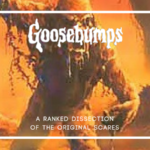
 In Black Panther #1, T’Challa is an exile from his own home, but that doesn’t mean Wakanda is without their loyal protector…
In Black Panther #1, T’Challa is an exile from his own home, but that doesn’t mean Wakanda is without their loyal protector…
A lot has happened within the pages of Black Panther lately, most notably that they’ve shifted from a monarchy to a parliamentary democracy. So what does that mean for T’Challa? The political shift has essentially made him redundant; what’s a king without a throne? But just because his presence is no longer wanted in Wakanda, there must always be a Black Panther to fight for her best interests, and T’Challa has not given up his duty in that regard. And although Wakanda has turned a page into democracy, there’s just enough political instability to ensure it needs the Black Panther’s watchful eye…
One thing you can’t say about the Black Panther title at large is that it’s afraid to change things up and radically alter the status quo. (This is, after all, the book that randomly became a sweeping space opera for a year just to give itself a new flavor.) With writer Eve L. Ewing —who becomes the first black woman to write the mainline Black Panther title with this gig— at the helm, T’Challa’s new situation leaves plenty of room to explore such big topics as political unrest, democratic transition, and where exactly he fits in this new framework of Wakanda.
There’s lots of interesting worldbuilding here,, such as the introduction of a previously unseen urban metropolis in Wakanda where T’Challa has been doing much of his crime fighting, that almost gives this issue a Batman-esque feel; low-level criminals on the streets of Birnin T’Chaka speculate and fear the specter of the Black Panther wherever they go. This run seems to be telling a Black Panther story of political intrigue through the lens of neo noir, which is a solid take to go with. Chris Allen’s art is appropriately dark and brooding when it needs to be, and the way he draws a looming Black Panther only feeds the Batman comparison in a way that makes for a compelling hook.




